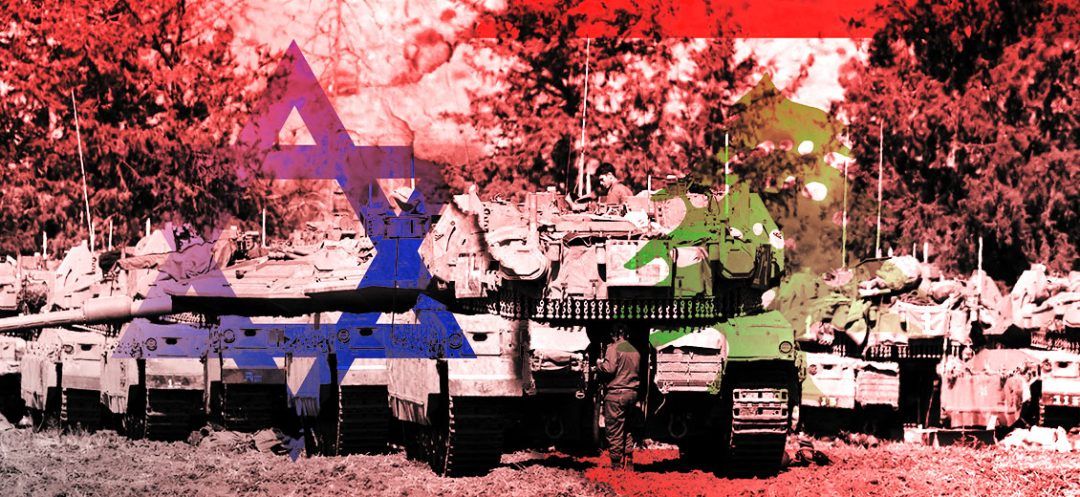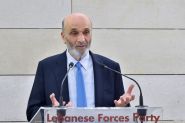
At the speed at which political and security developments are unfolding in Lebanon and the region, even though Tel Aviv has succeeded in weakening Hezbollah, the possibility of an Israeli ground operation, still under consideration, remains militarily and strategically risky for Israel.
According to The Wall Street Journal, the Israelis have allegedly sent troops into Hezbollah’s tunnels along the border as part of a targeted intelligence operation. The Lebanese Army also reported, according to a security source, "movements (by the Israelis) near the Blue Line." These claims have not been verified, but according to a well-informed military source, "it wouldn’t be surprising."
"What the Israelis currently favor are special operations, with raids on Hezbollah’s hideouts, arms depots and positions in southern Lebanon, as well as in the Beqaa Valley and Hermel," the same source estimates. "If a large-scale ground operation were to be launched, the Israeli state would rely primarily on its ground special forces (commandos, paratroopers, etc.) in the area it seeks to 'clear' rather than conducting a tank incursion, which is considered dangerous."
However, according to this same source, this scenario presents risks "for all stakeholders, who would always prefer a diplomatic settlement through negotiations." Why? Because in the event of an incursion, the intervention of the Lebanese Army would be inevitable to protect the national territory, which would have repercussions when the time comes to discuss the security of the entire border zone, from which Hezbollah would be pushed back. "It is known that the United Nations Interim Force in Lebanon (UNIFIL) alone is not capable of carrying out this mission and would need the support of the army. However, in the event of clashes between the Lebanese and Israeli armies, Tel Aviv could oppose Lebanese regular forces ensuring the security of a possible buffer zone," the source explains.
This analysis is supported by General Dominique Trinquand, a military expert and former head of the French military mission to the UN. "Given the partial failure of the application of UN Security Council Resolution 1701 since 2006 and the Lebanese Army’s inability to impose Hezbollah's withdrawal to the north of the Litani River, the Israelis might be inclined to replace regular forces and occupy the security zone they would seek to impose in the event of a ground invasion," General Trinquand points out.
While this operation is still considered, as two brigades are positioned at the border waiting for the order to mobilize, such an operation recalls the one in 2006 that resulted in the death of 200 Israeli soldiers, as well as the withdrawal of Israeli forces under UN protection. "A ground operation would have the triple disadvantage of endangering the lives of Israeli soldiers, being insufficient preparation for the post-war phase, and provoking international opposition, leading to Israel’s prolonged isolation, even though Israeli Prime Minister Benjamin Netanyahu does not seem to care about this last element," explains Trinquand.
What is the battle plan in the event of a ground offensive?
If a ground operation were to take place, it would be undertaken according to a battle plan that "would be limited to the southern region of the country," according to retired General Khalil Helou, meaning up to the Litani River. This offensive would be carried out, according to him, both from the Golan Heights and northern Israel. In his opinion, it would be "targeted" and end with a "withdrawal" once all Israeli objectives are met.
As for the duration, it would depend, according to General Helou, on Hezbollah’s current operational potential. "It is true that the pro-Iranian formation has been largely weakened, that its responses remain minimal, but it still has (military) capabilities in southern Lebanon, particularly in the tunnels," he points out. He adds, "In such a case, we would witness an endless guerrilla war, as Hezbollah Secretary-General Hassan Nasrallah had promised before he was assassinated," on September 27, when 80 GBU-72 bunker-buster bombs were dropped by the Israelis on Hezbollah’s headquarters in the southern suburb of Beirut.
In this scenario, the ground invasion would not only aim to ensure the return of the 68,000 displaced people from northern Israel (a goal set by Netanyahu) but also to completely dismantle Hezbollah. "The Israelis have moved beyond the stage where they only demanded Hezbollah’s withdrawal north of the Litani River and advocated for the implementation of Resolution 1701," General Helou asserts. "What we are witnessing is very similar to what happened in Gaza, and so far, nothing will stop the Israelis except US intervention, which is currently focused on the presidential elections scheduled for November," he notes.
While Israeli Defense Minister Yoav Gallant opposed the idea of a large-scale ground operation, favoring targeted attacks on Hezbollah’s capabilities, this no longer seems to be the case. On September 11, he personally supervised military exercises in northern Israel. He asked the troops to prepare for an imminent ground operation before announcing on September 18 that the "center of gravity" of the war against Hamas, ongoing since October 7, 2023, was "shifting north."
A few days ago, he held a meeting focused on the Israeli army’s preparations to "extend offensive activity" to the northern front. The assessment took place with the Israeli army chief of staff, Herzi Halevi, the head of operations, Oded Basiuk, and the head of intelligence, Shlomi Binder. Today, alongside Gideon Saar, a center-right MP and former Justice Minister, Gallant should lead the "game."
Saar, who joined the Israeli government on Sunday as a minister without portfolio, had been tipped to succeed Gallant after disagreements between the latter and Netanyahu, particularly regarding the military strategy to be adopted in the war with Hezbollah. Today, the two men seem to be on the same page, as it becomes increasingly clear that Hezbollah has been left to fend for itself by Iran.
"We will not send aid to Hezbollah in Lebanon" and "we will not deploy fighters there to face Israel," said Iranian Foreign Ministry spokesperson Nasser Kanani at a press conference on Monday. He clearly stated that "Hezbollah is capable of confronting the Israeli state alone" and that Iran "does not fear war but does not want to start it."
At the same time, Hezbollah’s Deputy Secretary-General, Naim Qassem, declared that his group "will continue, in Hassan Nasrallah’s footsteps, its war against Israel to support Palestine and defend Lebanon," promising his followers a victory "similar to that of 2006." But with what means, when Hezbollah, in addition to being weakened, sees its financial and military resources dwindling due to Israel’s firepower, which even prevents Iranian civilian planes from landing at the airport?
Read more



Comments